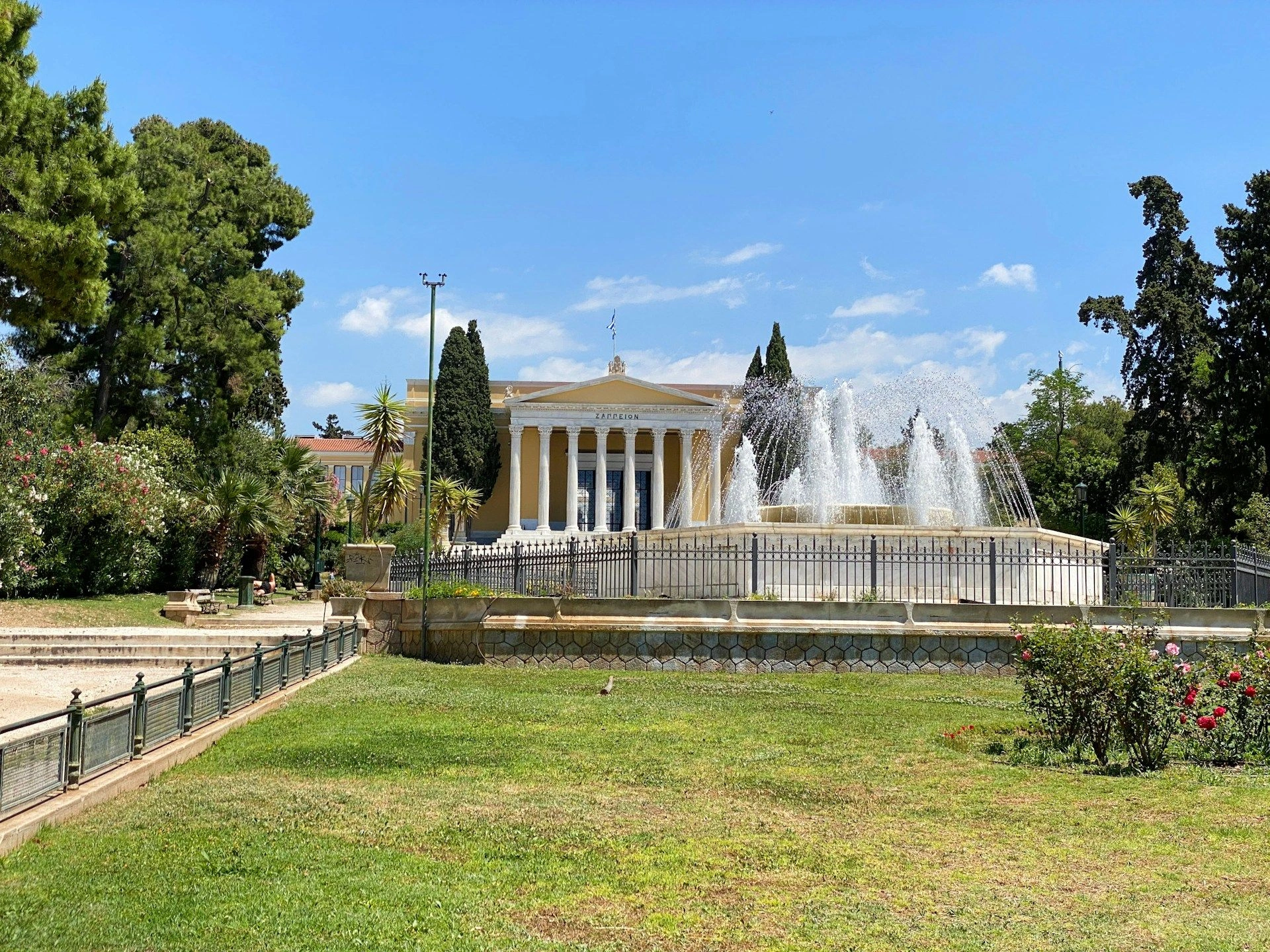Russian-Speaking Expat Therapy in AthensRegain emotional balance throughexpert online support

Advantages of Psychotherapy
for expats in Greece
Virtual Acropolis Grounding
One-on-one virtual sessions leverage guided imagery of the Acropolis, Plaka promenades, and ocean breezes to stabilize mood amid Athens’ urban hustle and Mediterranean vistas
Virtual Urban Navigation Confidence
Interactive online role-plays simulate Athens’ metro, tram, and ferry commutes, reduce travel anxiety, and build orientation skills across neighborhoods like Kolonaki, Monastiraki, and Piraeus harbor
Remote Family & Community Integration
Structured virtual therapy addresses shifting household roles, cross-cultural parenting, and forging supportive expatriate networks to strengthen family cohesion amid Athens’ cosmopolitan and traditional influences
Virtual Acropolis Grounding
One-on-one virtual sessions leverage guided imagery of the Acropolis, Plaka promenades, and ocean breezes to stabilize mood amid Athens’ urban hustle and Mediterranean vistas
Virtual Urban Navigation Confidence
Interactive online role-plays simulate Athens’ metro, tram, and ferry commutes, reduce travel anxiety, and build orientation skills across neighborhoods like Kolonaki, Monastiraki, and Piraeus harbor
Remote Family & Community Integration
Structured virtual therapy addresses shifting household roles, cross-cultural parenting, and forging supportive expatriate networks to strengthen family cohesion amid Athens’ cosmopolitan and traditional influences

Useful articles
and recommendations from experts
All
Global Market Guides
Greece
Navigating Property Ownership in Greece: Regulations, Restrictions, and VelesClub's Multilingual Guidance
Navigating Property Ownership in Greece: Regulations, Restrictions, and VelesClub's Multilingual Guidance
25.11.2023

Global Market Guides
Legal & Regulatory Insights
Greece
Short-Term Rentals in Athens: Earning €3,000 a Month
Short-Term Rentals in Athens: Earning €3,000 a Month
31.10.2023

All
Global Market Guides
Greece
People in Greece are willing to pay €3,000 to move to a village. True, there is a small nuance!
People in Greece are willing to pay €3,000 to move to a village. True, there is a small nuance!
03.11.2023

Securing residency and citizenship
Investment
Greece
Real Estate Investment for Residency: A Global Comparison
Where Property Buys You Residency in 2025
26.03.2025

Clinical Psychotherapy for Expatriate Adaptation in Athens
Relocating to Athens—the ancient cradle of Western civilization, now a bustling European capital—offers expatriates a unique blend of historical grandeur and modern urban life. From sunrise over the Parthenon to evening strolls through the Monastiraki flea market, newcomers encounter dynamic cultural, linguistic, and environmental landscapes. Yet these attractions come with challenges: intense summer heat, crowded metro cars, language barriers with Greek script, and intricate bureaucratic procedures. Virtual clinical psychotherapy provides a structured, expert-guided framework to support expatriates through every phase of their adjustment journey. Through secure online sessions on platforms like Zoom, Google Meet, WhatsApp, or Telegram, therapists offer evidence-based interventions to reduce relocation stress, enhance coping strategies, and foster sustainable emotional well-being as clients integrate into Athens’ multifaceted society.
Understanding the Emotional Phases of Expatriate Relocation in Athens
The expatriate experience in Athens typically unfolds across recognizable emotional stages, each requiring targeted therapeutic support:
Anticipatory Anxiety: In the weeks or months before departure, individuals often grapple with intrusive thoughts—“Will I secure the right visa?” or “Can I navigate the metro without Greek fluency?”—accompanied by insomnia, muscle tension, and a racing mind. Initial online sessions focus on psychoeducation: normalizing these stress responses and introducing core coping tools like diaphragmatic breathing, progressive muscle relaxation, and establishing structured “worry windows” to contain rumination.
Honeymoon Period: Upon arrival, expatriates frequently experience optimism fueled by new discoveries—sampling koulouri bread rings at a Syntagma district boulangerie, exploring street art in Psiri, or watching sailboats drift in the Saronic Gulf. This novelty can temporarily buffer stress, fostering curiosity and early social engagement.
Culture Shock: As routine demands emerge—registering residency at the Decentralized Administration office, deciphering Greek signage at Omonoia station, or coping with crowds during the Athens Marathon—feelings of frustration, loneliness, and self-doubt may surface. Social norms like late dining hours and indirect communication can clash with expatriates’ expectations, precipitating mood swings or social withdrawal if unaddressed.
Negotiation Phase: Collaborating with their therapist, clients develop personalized strategies: graded language exposures (ordering a frappé entirely in Greek at a local kafeneio), mood-tracking journals keyed to environmental triggers (heatwaves in July, sudden rainstorms in October), and micro-mindfulness breaks—such as a brief guided meditation in the shade of the National Garden—to manage in-the-moment stress. Cognitive reframing exercises help shift self-talk from “I can’t adapt” to “I’m learning local rhythms,” reducing anticipatory distress.
Adaptation Phase: Over time, expatriates report a coherent sense of belonging: confidently navigating the metro from Piraeus to Elliniko, joining evening plateia gatherings under bougainvillea, and forming supportive friendships with both Greek nationals and international peers. Emotional equilibrium returns as clients align personal values—community participation, cultural exploration, professional growth—with Athens’ vibrant seasonal cycles.
Key Therapeutic Approaches and Virtual Framework
Virtual psychotherapy for Athens expatriates integrates multiple evidence-based modalities within a flexible, client-centered treatment plan:
Intake & Roadmap Design: An initial assessment combines standardized measures (GAD-7 for anxiety; PHQ-9 for depression; PSQI for sleep quality) with a thorough clinical interview exploring personal history, pre-move stressors, and Athens-specific concerns. Therapist and client then co-create a personalized treatment roadmap, outlining session frequency (typically weekly to start), SMART goals (e.g., ordering food in Greek twice weekly), and selected interventions.
Cognitive-Behavioral Therapy (CBT): CBT equips clients to identify automatic negative thoughts—“I’ll never master Greek” or “I can’t handle metro crowds”—and systematically challenge them via thought records, behavioral experiments, and graded exposures. A practical assignment might involve predicting difficulty when asking for directions at Monastiraki station, then implementing the interaction and reflecting on actual versus anticipated outcomes.
Acceptance and Commitment Therapy (ACT): ACT fosters psychological flexibility by teaching acceptance of uncontrollable elements—summer heat above 35 °C, tram delays, or bureaucratic backlogs—and commitment to value-driven actions, such as joining a local art workshop in Kerameikos or volunteering at an expat community group. Values clarification exercises anchor motivation and guide practical goal-setting.
Mindfulness-Based Stress Reduction (MBSR): MBSR offers guided meditations, body scans, and breath-focused practices tailored for virtual delivery. Clients might visualize the gentle lap of waves at Glyfada Beach or the rustle of olive trees near Lykavittos Hill to anchor attention, interrupt rumination, and reduce physiological arousal. Regular home practice—brief mindful pauses during metro rides—reinforces skill acquisition.
Interpersonal Therapy (IPT): IPT addresses evolving social roles and communication hurdles. Role-play sessions simulate everyday exchanges—requesting a document at the embassy, engaging in neighborhood festivities on Dionysiou Aeropagitou, or participating in a Greek-language meetup—to build conversational confidence and ease relational anxieties.
Behavioral Activation: To counter withdrawal and low mood, therapists help clients schedule positively reinforcing activities: virtual art tours of the Benaki Museum, online Greek cooking classes for moussaka preparation, or remote attendance at live-streamed performances at the Megaron Concert Hall. Debriefing experiences in subsequent sessions reinforces motivation and integration of pleasurable engagements.
Navigating Athens’ Environmental and Bureaucratic Challenges
Athens’ Mediterranean climate and complex administrative landscape pose unique adaptation demands:
Climate Extremes: Long, hot summers—often above 35 °C with high humidity—and mild, rainy winters require climate-specific coping: therapists teach sleep hygiene strategies (blackout curtains for early dawn in July; humidifier use in December), cooling breathwork techniques, and pacing routines to avoid midday overheating. Mindfully timed outdoor activities—sunrise walks up Filopappou Hill—support circadian alignment and emotional balance.
Urban Stressors: Athens’ dense traffic, airborne pollution, and noisy nightlife can trigger sensory overload. In-the-moment grounding exercises—such as box breathing during tram or taxi commutes—and sensory anchoring (focusing on tactile sensations of marble steps at the Acropolis) mitigate distress and foster presence.
Bureaucratic Navigation: Residency procedures—applying for an AMKA social security number, scheduling a visa appointment at the Decentralized Administration, and enrolling in the National Health System (EOPYY)—involve multiple agencies and Greek-only forms. Therapists equip clients with anticipatory planning tools: bilingual checklists, appointment-script rehearsals, and cognitive reframing to view procedural delays as impersonal norms. Celebrating each administrative milestone—receipt of an AMKA card or successful health coverage activation—builds resilience and counters procedural anxiety.
Social Integration and Family Dynamics in a Mediterranean Capital
Meaningful social connections and family cohesion are essential for sustainable adaptation:
Building Local Networks: Virtual group workshops facilitate practice in Modern Greek, including regional greetings from Attica to Peloponnese, and decode social etiquette—when to stand for plateia gatherings, the significance of kefi (festive spirit), and polite forms of address. Network-mapping assignments help expatriates identify both online forums (e.g., expat community groups) and in-person meetups (language tandems at Monastiraki cafés), setting achievable goals like initiating weekly virtual conversations with Greek friends.
Family Systems: Relocation impacts each family member differently. Partners may adjust at varied paces—one thriving in Syntagma’s business district, the other coping with remote work isolation in suburban Glyfada—leading to potential role conflicts. Children face schooling transitions in bilingual international schools or Greek public schools, and peer integration. Virtual family therapy provides a structured environment to address these dynamics. Techniques such as active listening (“I feel overwhelmed when schedules change”) and collaborative planning (co-creating a family calendar of panigyria and beach days) foster empathy, shared problem-solving, and a cohesive family narrative.
Long-Term Resilience Planning: As expatriates transition from adaptation to integration, therapists schedule booster sessions at three, six, and twelve months post-move. These check-ins allow clients and families to revisit coping strategies, address emergent stressors—career milestones, academic progress, or regional events like the Athens Epidaurus Festival—and celebrate achievements. Intentional rituals—annual virtual reflections on relocation anniversaries with photo collages of Acropolis sunsets, autumn olive harvests in Attica—anchor progress, reinforce a lasting sense of belonging, and empower expatriates to continue thriving under Greece’s azure skies.
